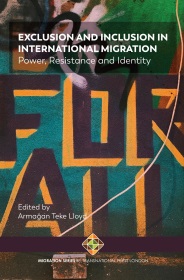Multi-level Governance of Human Mobility: Ending Discrimination and Promoting and Protecting Human Rights of All People on the Move
Multi-level Governance of Human Mobility: Ending Discrimination and Promoting and Protecting Human Rights of All People on the Move
Author(s): Miguel Santos Neves
Subject(s): International Law, Human Rights and Humanitarian Law, Governance, Social differentiation, Post-War period (1950 - 1989), Transformation Period (1990 - 2010), Present Times (2010 - today), Migration Studies
Published by: Transnational Press London
Keywords: migration; human mobility; governance; discrimination; human rights;
Summary/Abstract: Human mobility is the human face of globalization, the cement that links human communities across the globe and a highly relevant political issue increasingly controversial in many societies in the face of mounting pressures. The main drivers behind human mobility across and within borders are related to the three Ds, Demography and demographic gaps; Development failures and poverty; Democratic and governance failure associated with human rights violations. Moreover, mobility is both a consequence and a cause of human insecurity. On the one hand it is a response to a deregulated globalization that produces increasing inequality and human insecurity but, on the other, mobility itself is increasingly associated with higher levels of human insecurity in the absence of a robust system of international protection.
Book: Exclusion and Inclusion in International Migration: Power, Resistance and Identity
- Page Range: 137-167
- Page Count: 31
- Publication Year: 2019
- Language: English
- Content File-PDF

